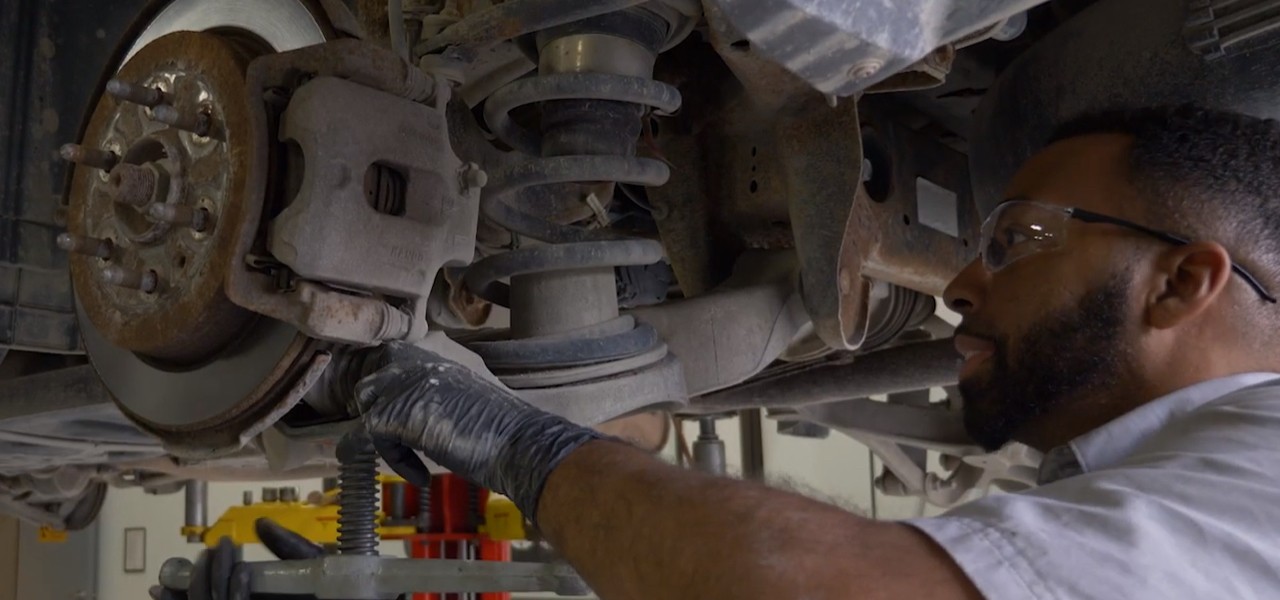
How to Install a Shock on a Chevrolet/GMC SUV
Shock Basics
Shocks are a key part of your suspension system helping keep your vehicle’s tires in contact with the road to maintain a high level of steering, stopping and stability. The primary purpose of a shock absorber is to control spring and suspension movement to reduce bounce, brake dive and acceleration squat, and roll and sway from worn shocks losing their ability to control the rate of weight transfer.
Replacing a failing shock with a Monroe® OESpectrum® shock restores your vehicle’s original factory drivability and performance. OESpectrum shock absorbers provide an exceptional level of handling precision and control while filtering out noise, vibration and harshness. To learn how to install a Monroe OESpectrum rear shock, check out the steps for installing part number 37315 for 2009-2012 Chevrolet Traverse, 2008-2012 Buick Enclave, 2007-2012 GMC Acadia and 2007-2010 Saturn Outlook.
Steps for Replacing a Rear Shock
Step 1
Raise the vehicle and support the frame. Remove the rear wheel.
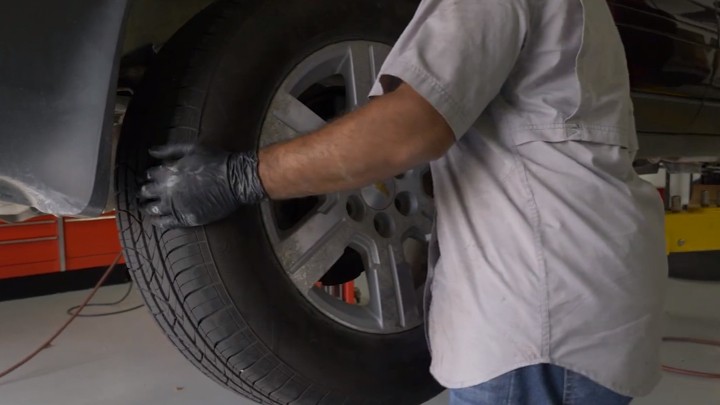
Step 2
Prime the shock two to three times. Fully compress the unit and allow it to extend on its own.
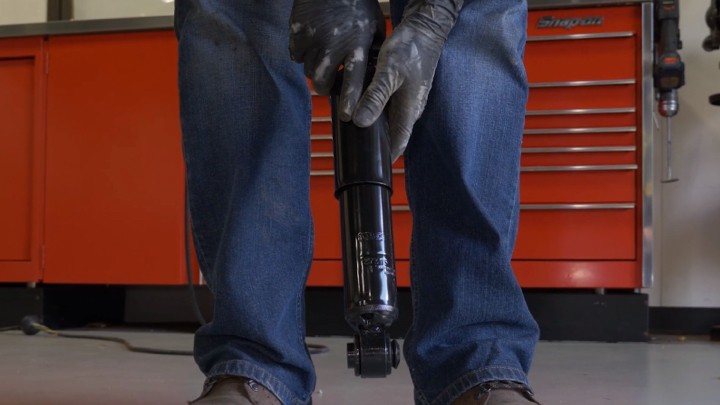
Step 3
Remove and save the lower mounting nut and bolt.
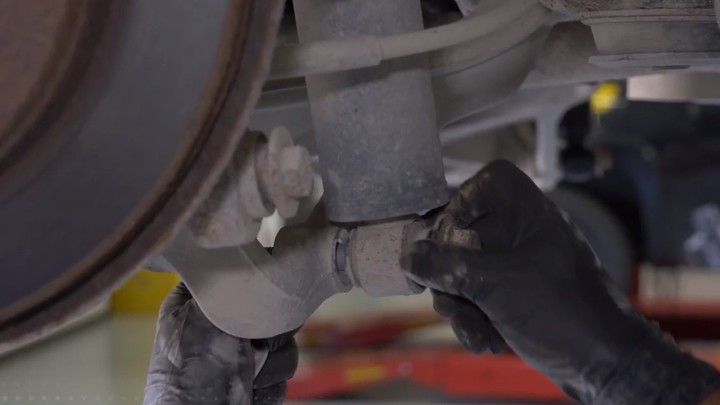
Step 4
Remove and save the upper mounting nut and bolt.
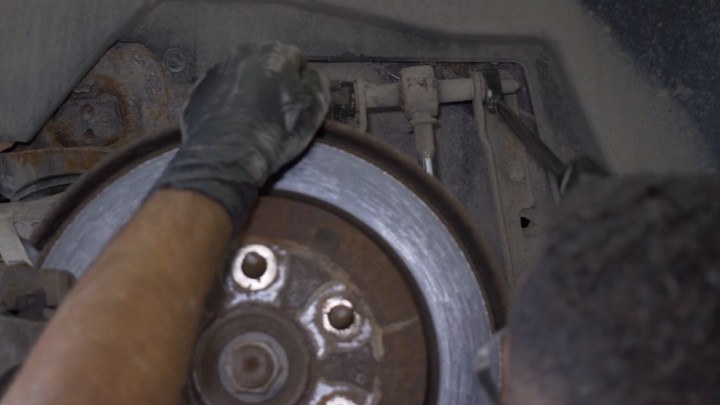
Step 5
Remove the old shock.
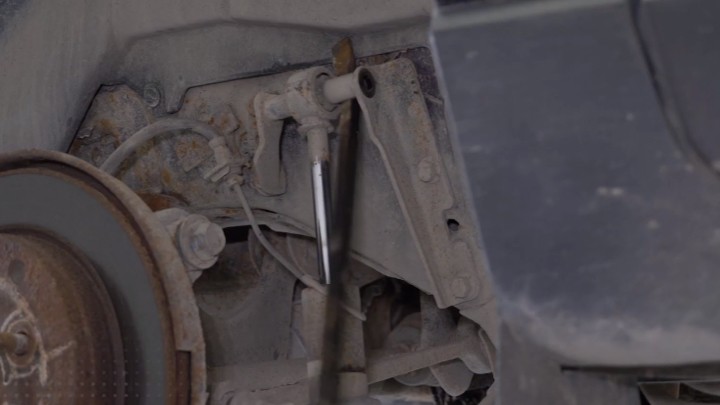
Step 6
Remove the old shock.
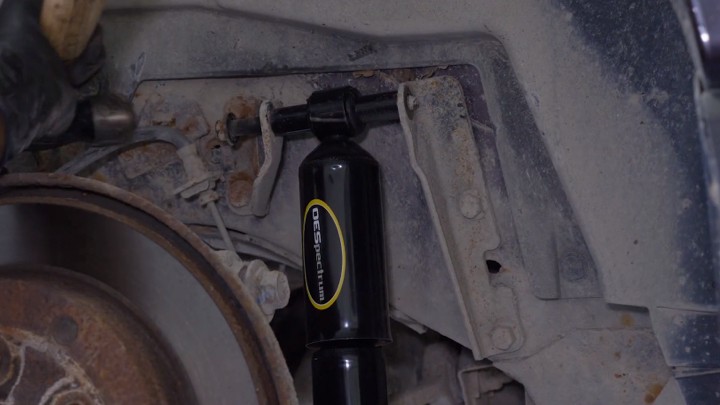
Step 7
Install the lower mounting nut and bolt.
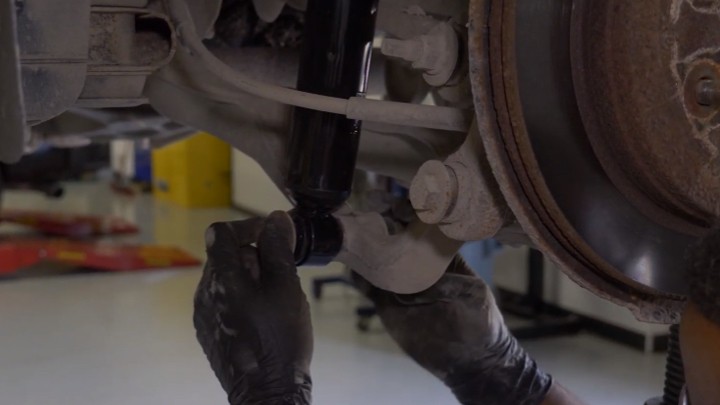
Step 8
Torque the upper mounting nut and bolt to manufacturer specifications.
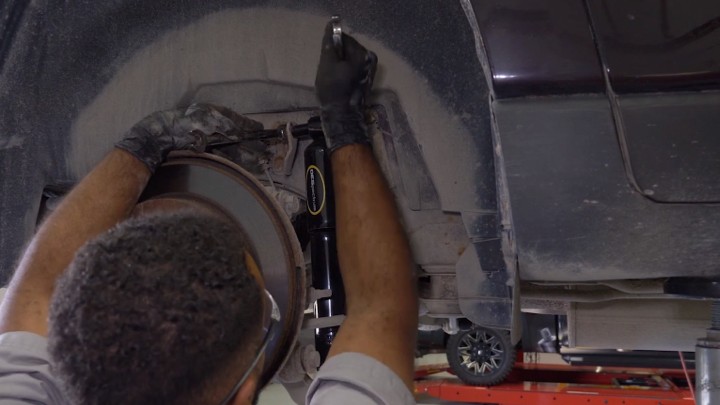
Step 9
Torque lower mounting nuts and bolts to manufacturer specifications.
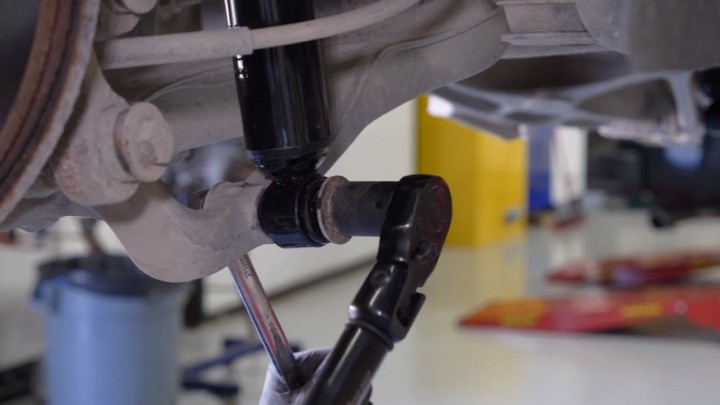
Step 10
Replace the wheels and install the lug nuts. Lower the vehicle and torque the lug nuts to manufacturer specifications.
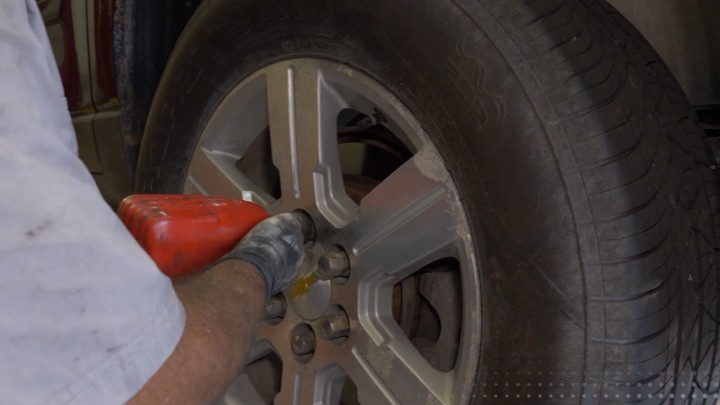
Learn more about quality ride control parts, find the right car part, or find a local repair shop today.
The content contained in this article is for informational purposes only and should not be used in lieu of seeking professional advice from a certified technician or mechanic. We encourage you to consult with a certified technician or mechanic if you have specific questions or concerns relating to any of the topics covered herein. Under no circumstances will we be liable for any loss or damage caused by your reliance on any content.